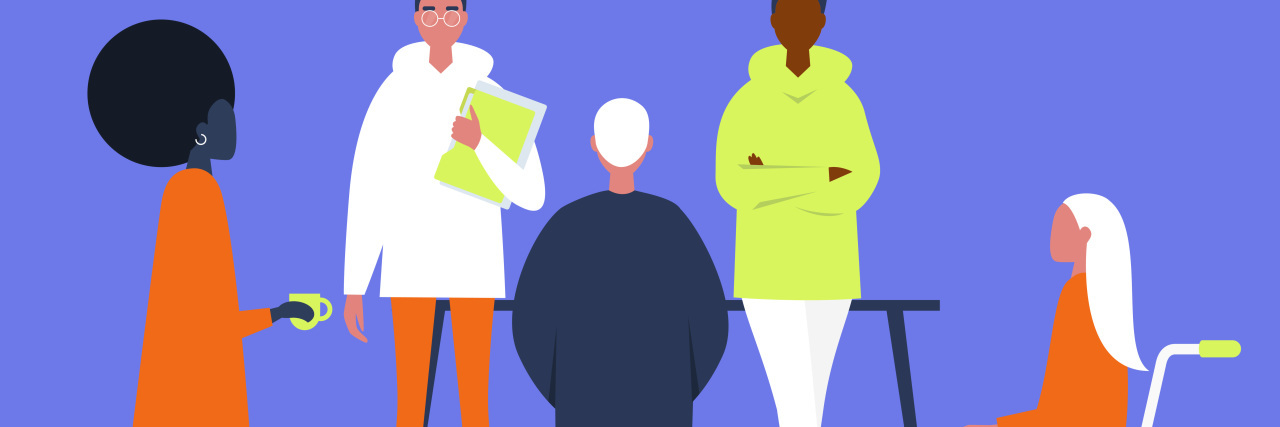It’s Women’s History Month and the theme is #ChooseAChallenge. This month, I’m choosing to challenge the stigmas around women with disabilities.
Women with disabilities are often subjected to the double discrimination of gender and disability. This inequality is further exacerbated if they are members of other marginalized groups such as race or sexual orientation. As a woman with a physical and mental disability, I’ve worked my whole life fighting with educators, employers, and doctors to get them to take me seriously. Because of this, I’ve always had to have my father or my husband with me as an advocate for anyone to listen to me. As a grown woman, I should not have to rely on the men in my life for my voice to be heard.
Where women with disabilities need the most support, we are being failed. Disabled women are grossly left behind in healthcare. They are less likely to receive regular health screenings, are at risk for forced sterilization, and are undiagnosed due to outdated research and practices. A study in the U.S. showed that women with disabilities were significantly less likely to receive pelvic exams than non-disabled women. Women are often not taken seriously by their doctors. They are often seen as over-exaggerating their pain or faking it. Illnesses that primarily affect women such as endometriosis can take upwards of six to 10 years to be properly diagnosed. Their pain is seen as just a bad period.
My experience as a disabled woman with a congenital heart defect was that my parents always had to fight with the insurance providers to get me proper care. When I became an adult, although I had my own insurance, the system left me behind. I felt as if I was too much of a burden for doctors and insurance companies to manage. It became apparent when my cardiologist at the time stopped emailing me or answering my calls about discussing my test results and how to proceed. I’ve often had to have my father talk to my health providers. If my father speaks to them with an authoritative voice, he is seen as being protective. However, if I speak like how he speaks to insurance companies or to health professionals, I’m seen as irrational and out of control.
Women have also been left out of many health studies, thus leaving a large population of women undiagnosed. For example, it was believed for many years that autism and ADHD were primarily male disorders. However, there has been more research into the differences between men and women who are neurodiverse, which is leading to more women being diagnosed. There are still many undiagnosed adult women on the spectrum who are continuously fighting against a biased system, just to be able to get a diagnosis.
When it has come to my experience with healthcare, my father has always researched all of my medical issues and then came to the doctors with that knowledge. When he would speak to them with that knowledge, I noticed they would then take him seriously and with respect. He was no longer looked at as just a normal concerned parent, but someone who knew what they were talking about. As I got older and started to do the same, I researched my condition and came to doctors with how I was feeling. I made lists and came as equipped as I could. But instead of respect, I was treated as a child and someone who just “Googled” issues. It took me seven years from the time I suspected I was autistic to the time I was able to get a diagnosis. I am still on the path of diagnosis for other chronic pain issues.
Disabled women’s sexual and reproductive rights are often abused. Disabled women are often at risk of forced sterilization and abortion due to discriminatory attitudes about their parenting abilities. Women with congenital defects are often told they aren’t able to have children and aren’t given the knowledge or options if it is possible for them to bear children. The reasons often given are that their genetics can be passed down or that the pregnancy could be high risk. Women with intellectual disabilities are at greater risk for forced sterilization due to these discriminatory attitudes.
I was told most of my life I could not have children due to my disability. It wasn’t until I had accepted that I was not going to have children that a cardiologist explained to me that it was possible for me to have children safely.
There is so much work that needs to be done. It is important to recognize that many marginalized disabled women’s issues are not recognized. Equal healthcare is just one of the many issues women with disabilities face, but it is one of the most important ones. If we can’t get equal healthcare, how can we survive? How can we be expected to thrive like our counterparts? As a disabled woman, I matter! Our lives are beautiful and we deserve to get proper healthcare no matter our sex, race, gender or disability.
Happy Women’s History Month! Are you a disabled woman? Have you experienced discrimination?
Getty image by nadia_bormotova.

